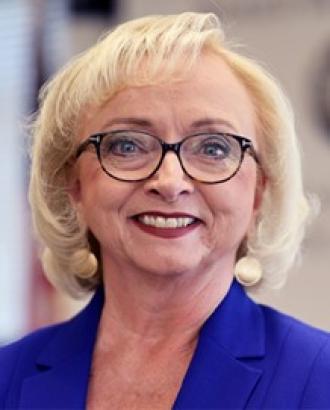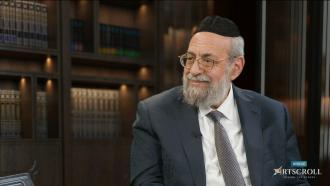Inspiring Jewish Quotes for Rosh Hashanah by Dr. Yvette Alt Miller
Facebook6TwitterEmailMore5
“A sudden transition from one opposite to another is impossible and therefore man, according to his nature, is not capable of abandoning suddenly all to which he was accustomed.” Rabbi Moshe ben Maimon (Maimonides) - (Guide for the Perplexed 3:23
Making major changes in our lives is possible, but Maimonides’ advice reminds us to take it slow, one step at a time. Taking incremental steps makes it more likely that we’ll still with new resolutions and routines.
“All beginnings are hard.” Mekhilta Yitro
Remember that while it can be hard to start to change, with effort and practice, things do get easier. Keeping this in mind can help us over the initial discomfort of trying something new.
“If you wish to change your personality, study Torah and implement it in your daily living, and pray to God to remove your undesirable traits. You cannot do it by yourself.” Rabbi Yisroel Friedman (1796-1850)
Change is in our power, but only up to a point. If we truly want to alter ourselves, we need to also pray to the Almighty to give us the strength we need to change.
“As long as the candle is still burning, it is still possible to accomplish and to mend.” Rabbi Yisrael Salanter
One night, Rabbi Salanter was walking home, past the home of a shoemaker. Despite it being very late, he observed the shoemaker was still busy, working by the light of a single candle. “Why are you still working?” Rabbi Salanter asked him. “It is very late and soon the candle will go out.” The shoemaker replied “As long as the candle is still burning it is still possible to accomplish and to mend shoes.” In his wisdom, Rabbi Salanter realized this message is true for all of us. It’s never too late to change.
“When a person turns himself around, regrets his past and does good – that is such a powerful act that his sins become merits.” Rabbi Shimon ben Lakish
Rabbi Shimon ben Lakish, known as Resh Lakish in the Talmud, knew a thing or two about overcoming sins: he gave up a career as a bandit to repent, study Torah and eventually become a great scholar. He taught that starting anew can wipe away our past mistakes and regrets.
“How old will be you be in seven years of you don’t go to medical school (or fulfill any other ambition)?” Pauline Phillips (“Dear Abby”)
Few of her readers realized that Abigail Van Buren, who penned the long-running “Dear Abby” advice columns from 1956 until her death in 2013, was actually a Jewish woman named Pauline Phillips from Sioux City, Iowa. One of her most famous pieces of advice was given to “Unfulfilled in Philly”, who wrote that he would love to be a doctor, but if he were to go back to college and get his degree, then go to medical school, then do an internship, and finally practice medicine, it would take him seven years and he’d be 43 years old. Dear Abby’s advice was priceless: How old will you be in seven years if you don’t do all those things? It’s better to fulfill our dreams later in life than never.
“Though the righteous one may fall seven times, he will arise.” King Solomon (Proverbs 24:16)
In Jewish thinking, a great person isn’t one who never fails; it’s one who fails and keeps trying. You can only become a truly great person through the crucible of failure and perseverance.
“It’s not that I’m so smart, it’s just that I stay with problems longer.” Albert Einstein
Success is determined in great part by our ability to keep trying. Even when the task is difficult, persevering can help us succeed in the end.
Knowing Your Life Matters by Rabbi Benjamin Blech
There is a story I heard some years back which resonated with me in a way I believe changed my life.
It happened years ago in Israel at the time when Menachem Begin was Prime Minister and Israel was going through a period of severe economic difficulty. One of the members of the Knesset at the time was Shmuel Tamir. Tamir was not personally observant, but he nonetheless felt it was his prerogative to speak to one of the preeminent sages of Jerusalem, the legendary Reb Aryeh Levin zt”l, widely known and respected for his compassion, to enlist his support for a religious ruling.
Tamir felt that Israel’s difficult economy many couples simply could not afford to properly take care of the needs of a growing family. He argued with the Rabbi to agree to allow abortions for some of his followers.
Rabbi Levin paused for but a moment before he responded:
I find it very interesting that you’ve come to me with this question because years ago I was faced with a very similar predicament. A young couple came to me. They were students with one child, a little girl, and they had just found out that another was on the way. Their financial situation was desperate. They saw no way to cope with the costs of another mouth to feed. They too begged me to consider granting them permission to end the life of the fetus.
I explained to them that although I understood with all of my heart that it would not be easy, there were three reasons why they needed to go through with the pregnancy and allow their child to be born. The first was the firm conviction that God who gives life can be trusted to sustain it. God assures us that He stretches forth His hand and supports all of His children. You may be confident that your child is also His child - and his Father will never forsake him.
The second reason for my decision is your legal responsibility. You already have one child, a girl, but Jewish law requires that you strive to fulfill the biblical commandment of “be fruitful and multiply” with a boy as well.
But the third reason for my refusal to allow you to abort is perhaps the most important. You are pregnant – and within you there already exists a holy soul with a mission. Like every one of us here on earth, a soul has a purpose which the world needs or else it would not have been created. Don’t prevent the fulfillment of your child’s mission, for its sake and for the sake of all mankind.
Tamir, disappointed by the rabbi’s refusal to accede to his request, asked, “And did they listen to you and did they have the child?” Rabbi Levin answered, “Yes, they had a boy.” “And,” Tamir followed almost sarcastically, “did the boy fulfill his mission in life?”
Rabbi Levin responded, “This you will have to answer. The people who came to me those many years ago were your parents and you are standing before me today only because they chose to follow my ruling. So, indeed, let me ask you now – did you fulfill your mission?”
It was a startling dénouement to an amazing story that highlights an ultimate question relevant to every one of us as we contemplate our own lives and the reason for our continued presence here on earth.
God placed us here because our lives matter. They matter not just to us. Our lives are meant to matter to the world as well. We are all Divine messengers with a mission. And in the ultimate sense, our lives matter to God. He put us here, so obviously we have a purpose. The journey of our lives is to seek out our mission – and then strive to hopefully fulfill it.
Our mission can revolve around many things. It can be concentrated around our families, our loved ones and our people, our careers and professions, our talents and Divinely-given gifts which make us unique and allow us to do the things no one else could or would ever do – and without which the world would be so much poorer.
On the High Holy Days we turn to God and pray for life. We need to spend some time identifying our unique mission in order to fulfill our purpose. Continuing to make our lives matter is our guarantee that we will be granted ever more opportunities to fulfill our mission. This Rosh Hashanah, may we live up to that challenge.
















